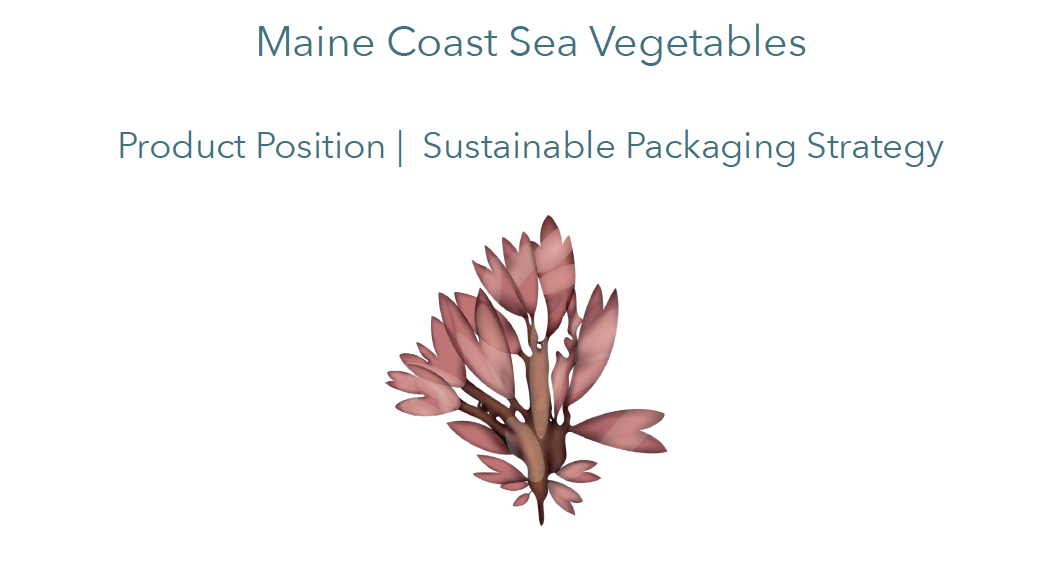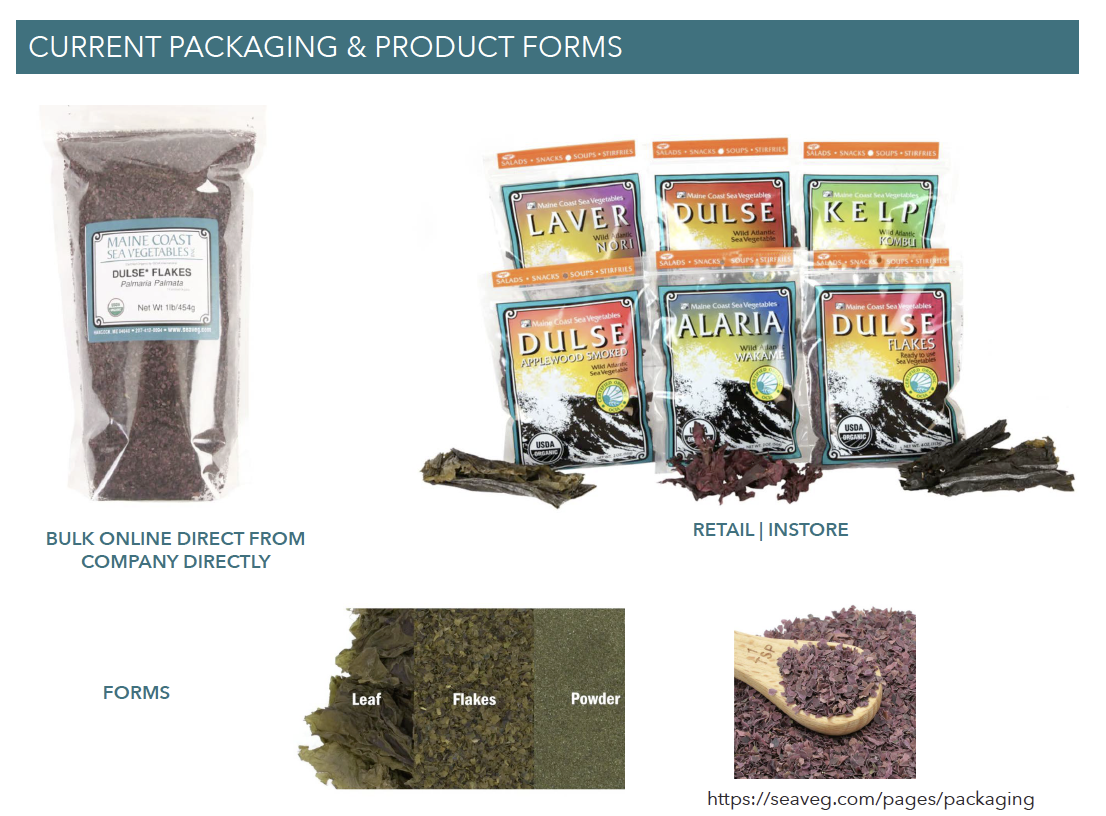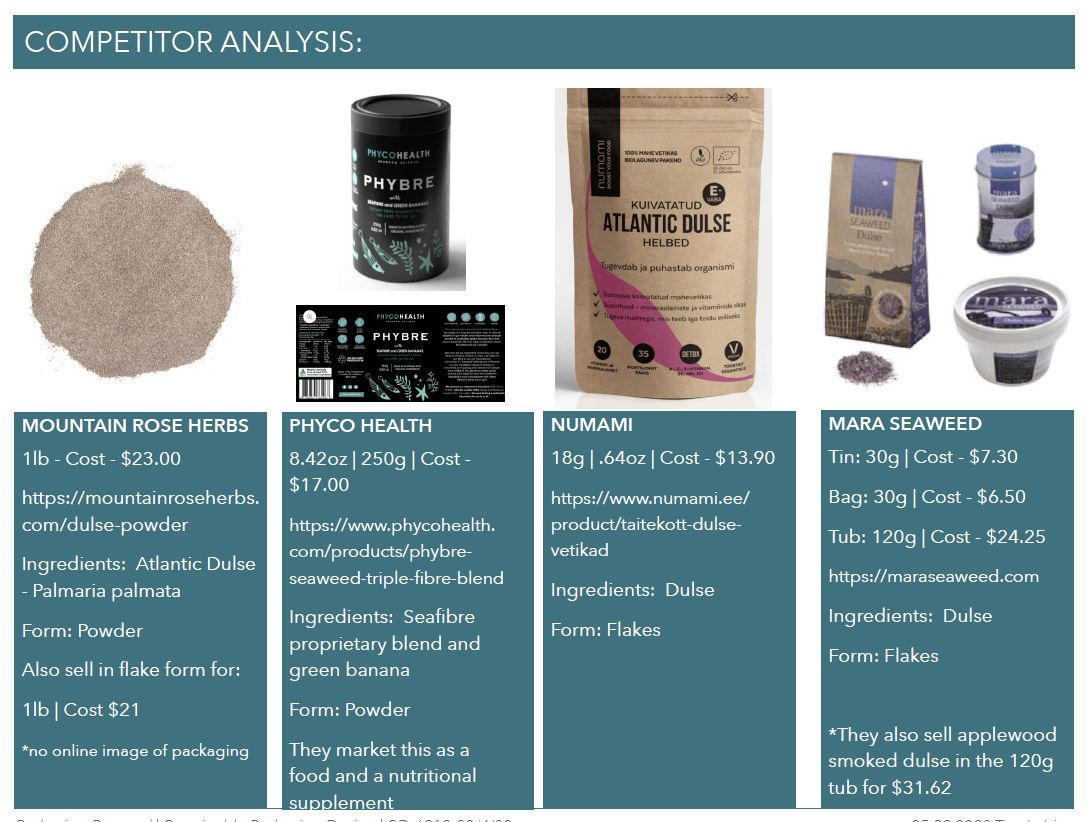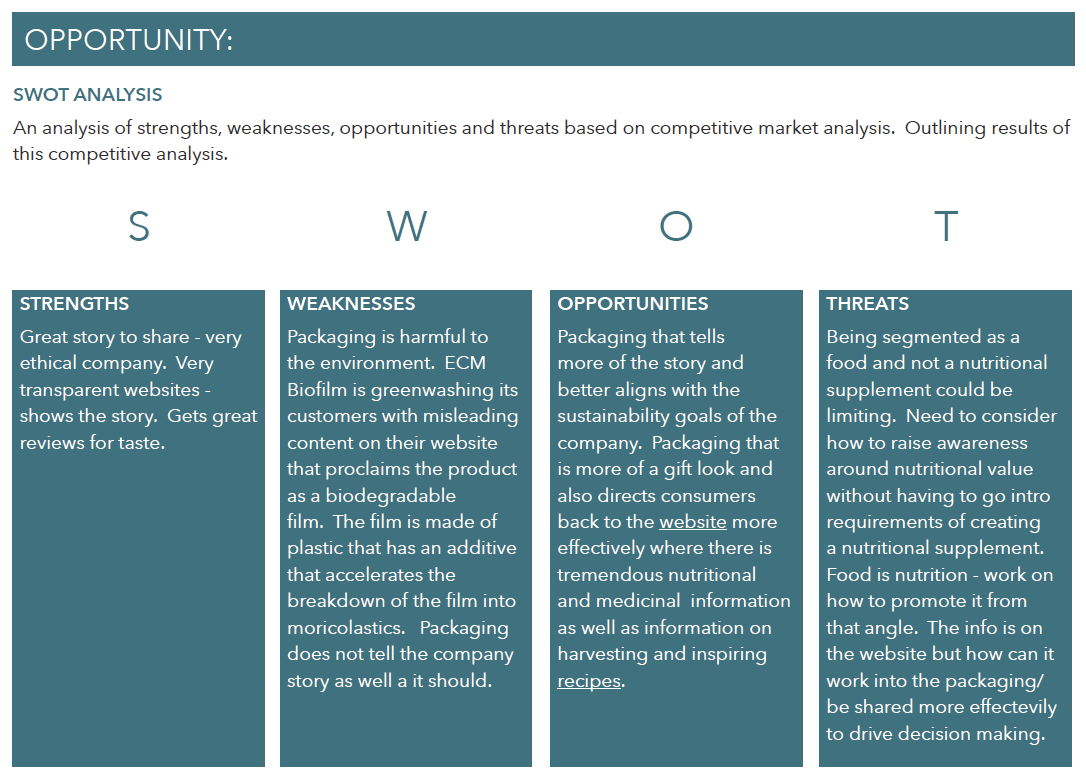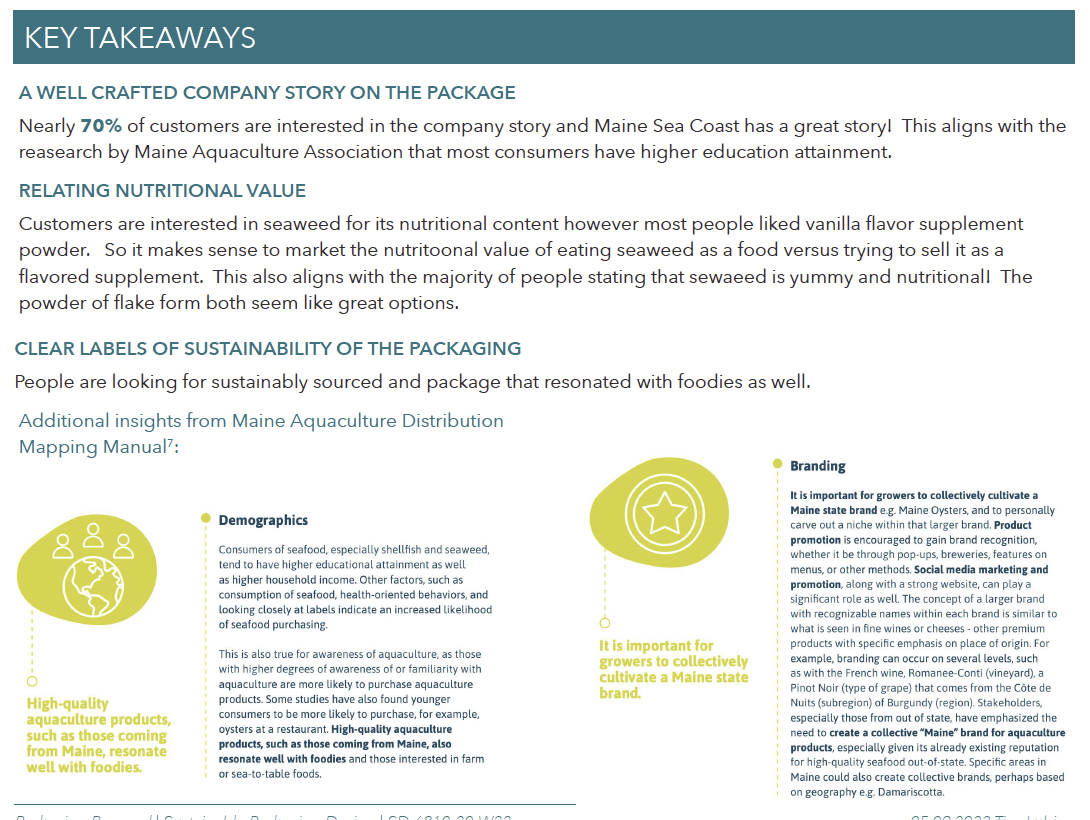Packaging Sustainably
This project explored how to package a seaweed product sustainably
Maine Coast Sea Vegetables was the company chosen to evaluate.
Evaluation
understanding the company profile
current packaging options
exploring the competitive environment
identifying opportunities for change
ideas for market strategies including marketing and branding on packaging
understanding the market segment and trends
conducting a survey,m materials, processes, waste
energy analysis, supply chain assessment
Current & Competitor Analysis
Understanding the current materials used by Maine Coast Sea Vegetables, why those materials were selected and what options competitors chose and why. Considerations were keeping the product dry, food grade, location, price, and ability to recycle or biodegrade.
SWOT
Using SWOT analysis to identify opportunities for change
Market Segment Analysis
Understanding trends in the market and what is resonanting with customers
Materials, Processes, Waste & Energy
Researching the packaging requirement for dried seaweeds, understanding how other companies are meeting those needs, and looking to products with similar needs and parameters for inspiration.
Supply Chain
Evaluating not only the GHG emissions but also the social welfare of the makers and communities involved in various supply chains as well as the ethics and values that contribute to the whole picture of creating a supply chain that is truly sustainable meeting all 8 listed requirements of Sustainable Packaging Coalition’s Definition of a Sustainable Package.
1. Is beneficial, safe & healthy for individuals and communities through its life cycle
2. Meets market criteria for performance and cost
3. Is sourced, manufactured, transported, and recycled using renewable energy
4. Maximizes the use ofd renewable or recycled source materials
5. Is manufactured using clean production techniques and best practices
6. Is made from materials healthy in all probable end-of-life scenarios
7. Is physically designed to optimize materials and energy
8. Is effectively recovered and utilized in biological and/or industrial cradle-to-cradle cycles
